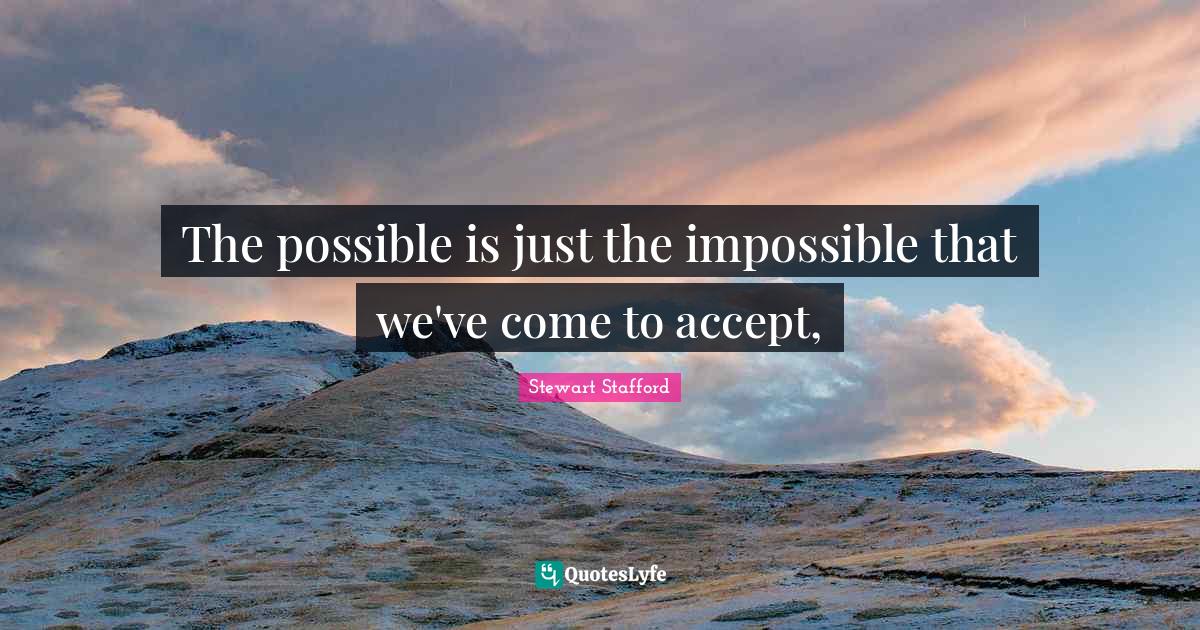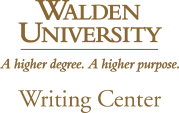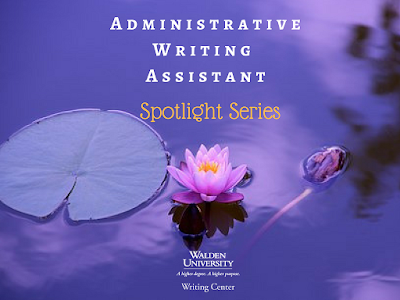2022: Just Keep Swimming
In his 2017 bestselling book Finish, author Jon Acuff writes, "I thought the biggest problem for people was the phantom of fear that prevented them from beginning...Fear was the ghost holding them back and starting was the only way to beat it. I was half right. The start does matter. The beginning is significant. The first few steps are critical. But they aren't the most important. Do you know what matters more? Do you know what makes the start look silly and easy and almost insignificant? The finish."
Last March I introduced the blog's 2021 theme of Motivation. This year--a year actually beginning in January!--I'd like to continue that concept into a new theme: the theme of Momentum.
As Acuff points out, starting is important. And motivation can help us get to the starting line. But momentum is what gets us through the slog of the "messy middle." According to Acuff, the most important point of any major goal or project is what happens "the day after perfect."
The day after perfect is what Acuff calls the period of time that follows the first instance someone doesn't live up to their own idea of what the completion of their goal should look like. It's the day after the first time you hit snooze instead of waking up early for a run, the night after the night you fell asleep without writing in your journal, the meal after you passed on the salad bar and went straight for dessert. It's the moment you might be tempted to say, "Well, I've already messed up, might as well just give up entirely!"
There's an old cliche that says something to the effect of, 'just because you break one plate doesn't mean you should throw every other plate on the ground.' And this seems totally obvious, but it's amazing how often I find myself tempted to do just that. Metaphorically, I mean...So this year we're going to try to build on our motivation and find the momentum to keep moving forward even after our plans go slightly askew. The topic will be applied to writing-related issues, but hopefully these ideas will be useful in all areas of life. Here's to 2022!
Reference
Acuff, J. (2017). Finish: Give yourself the gift of done. Portfolio/Penguin.
The Benefits of Regret
I can't believe it's already the end of December. It seems this past year was both unending and insanely short. (Or is that just me?) I introduced the blog's theme of motivation in March and--while it hasn't been a full year--it seems fitting to look back at that theme and start planning for 2022. (It will probably be March again before I'm able to write 2022 without either first writing 2021 or feeling the need to double-check that I'm not making up a year).
My WriteCast cohost, Claire Helakoski, will be posting an episode focused on SMARTER goals at the beginning of next month and the discussion we had got me thinking about how we can use reflection--as well as careful planning for the future--to ensure we move forward in our most important goals. In particular, I'm wondering if there's a way to reframe supposed 'failures' and regrets so they can propel us in a positive way rather than holding us back.
Much research has been done on the ways thoughts impact reality. As productivity coach Michael Hyatt (2021) put it, "we tend to experience what we expect...our success ultimately depends on our ability to tell the difference between reality and the story we are telling ourselves...when we believe we can't, we don't. The difference is all in our heads" (p. 18). Similarly, author Stewart Stafford argued, "the possible is just the impossible that we've come to accept" (QuotesLyfe.com). Basically, how we frame things in our own minds is important.
This is why I think it would be a good idea to (re)frame how we might usually think about our past mistakes, regrets, and anything we might consider a failure. Some of my favorite motivational quotes run along the lines of, 'failures are actually opportunities for learning' but at times this can seem cliché or flippant. Personally, I find these quotes inspiring in general, but less helpful in times I find myself overthinking things I've done or avoided doing. If you're like me, hearing "don't think about pink elephants" instantly conjures images of those animated "heffalumps" from "Winnie the Pooh and the Very Blustery Day" (or some other version of elephants in shades of faded red). And quotes like "we learn from failure, not from success", at a time when I'm overthinking, read as platitudes rather than sound advice (Stoker, 2000, p. 103).
Research has also found that attempting to 'just get on with things' rather than allowing yourself to deal with regret is actually more damaging than we might think. Janet Landman (1993), a psychologist from the University of Michigan posited, "Regret may not only tell us that something is wrong, but it can also move us to do something about it" (p. iii). And University of Illinois researchers Neal Roese and Amy Summerville (2005) conducted an in-depth study about regret and found "people's biggest regrets are a reflection of where in life they see their largest opportunities; that is, where they see tangible prospects for change, growth, and renewal" (p. 1273). Basically, we tend to particularly dwell on mistakes we've made where we are most easily able to determine what misstep preceded, or what alternative action could have likely changed the outcome for the better.References
Hyatt, M. (2021). Your best year ever. Michael Hyatt & Company, Inc.
Landman, J. (1993). Regret: The persistence of the possible. Oxford University Press.
QuoteLyfes.com. (n.d.) Steward Stafford quotes. https://www.quoteslyfe.com/quote/The-possible-is-just-the-impossible-that-258026
Roese, N. J., & Summerville, A. (2005). What we regret most...and why. Personality and Social Psychology Bulletin, 31(9), 1273-1285. https://doi.org/10.1177/0146167205274693
Stoker, B. Dracula. Dover Publications, Inc.
Kacy Walz is a writing instructor from St. Louis, MO. She is currently working on a PhD in Literature from the University of Missouri. Along with her work on the blog, Kacy also cohosts the Walden Writing Center podcast. She enjoys piña coladas and getting caught in the rain.
.png)
How to Find and Keep Your Confidence as an Academic Writer
How does confidence impact writing and the motivation to write? What adds to our confidence when it comes to writing, and what diminishes it? How can a writer maintain, develop, or rebuild confidence in their writing skills?
To begin with a definition (because it's probably best to know what the thing is before we discus how to increase it!), Merriam-Webster (n.d.) described confidence as "a feeling of or consciousness of one's power" and "faith or belief that one will act in a right, proper, or effective way." In other words, confidence is trusting that we are capable of accomplishing a goal we've chosen to pursue or a task we've been assigned. Confidence is feeling good about our ability to be who we want to be and do what we want to do.
Reciving a disappointing grade, or criticical feedback that doesn't seem helpful understandably brings us down, especially if our confidence when it comes to writing is already shaky. Also, if we feel we're alone in the writing process, or like we don't know enough about academic writing as a genre to be able to do it well, we definitely won't be enjoying the good feelings confidence brings.
But there is hope. (We definitely wouldn't publish this post if we didn't think so!) When it comes to academic writing and APA style, the Walden WritingCenter’s website offers a number of resources to help students learn more about the expectations involved. We also strongly encourage you to reach out to your professors to clarify what is required of you for any assignments that seem confusing or unclear, or to discuss any feedback they provide. Finally, forming meaningful relationships with your fellow students--for instance, creating spaces where you can vent to, commiserate with, and encourage each other--can help keep those feelings of loneliness at bay.
Reference
Merriam-Webster.
(n.d.). Confidence. In Merriam-Webster.com dictionary. https://www.merriam-webster.com/dictionary/confidence
Grete Howland is a writing instructor who's been with the Walden Writing Center since 2019. Before joining the Writing Center, Grete taught English and creative writing to middle and high school students. When she's not working with words, Grete loves paddle boarding, running, wine tasting, and hanging out at home with her husband and dog.
Motivation: My theme for the Walden Writing Center Blog and life in general in 2021
My name is Kacy Walz and I've been a Writing Instructor at Walden University since the end of 2016. I've written a few posts for the blog in the past and, this year, I'm excited to take the reigns. I'm also excited to share the theme of 2021's upcoming posts: motivation.
Something that never fails to inspire me is working with Walden students and witnessing the incredible things they do in their scholarship and day-to-day lives. I'm so grateful for that and I believe that tapping into my work at Walden will help get me to the proofreading stage of writing.
Kacy Walz is a writing instructor from St. Louis, MO. She is currently working on a PhD in Literature from the University of Missouri. Along with her work on the blog, Kacy also cohosts the Walden Writing Center podcast. She enjoys piña coladas and getting caught in the rain.
.png)
Handling the Hot Thoughts: Cognitive Behavioral Therapy and Writing
- You’re writing a major assessment for a course and you have no idea where to start. You pored over research, but you are putting off writing because you feel overwhelmed.
- You’re almost done with an annotated bibliography. The annotations and entries are done, but now you are stuck on the introduction. You’re feeling anxious about finishing this assignment because it is worth such a large percentage of your course grade.
- “I have no idea how to start this paper, because I am not good at writing. Hot thought: Whatever I turn in will be terrible.”
- “I have no idea what to write for this introduction. What if I finish this assignment and I get a terrible grade? Hot thought: If I get a terrible grade, my overall course grade will drop.”
- I have never turned in a terrible paper before. While I may have done poorly on some writing assignments in the past, I was able to revise my writing and learn from the experience. Alternative Thought: I am confident in all the research I have done. I can freewrite my first draft and then get help from the Writing Center.
- So far I have not received a bad grade in this class. In fact, my instructor has been happy with my writing. Alternative thought: I may be stuck now, but I will begin by outlining my introduction. If I am still struggling with writer’s block, I will reach out to my instructor for feedback.
Tasha Sookochoff is a writing instructor in the Walden University Writing Center. Along with earning degrees from the University of Wisconsin, Stout and Depaul University, Tasha has written documentation for the U.S. House of Representatives that increases government transparency, blogged for DePaul University, copy-edited the Journal of Second Language Writing, tutored immigrants and refugees at literacy centers, and taught academic writing to college students.
.png)
Never miss a new post; Opt-out at any time
Thursday Thoughts: Old Hat
We have all heard that creativity is a muscle. You can stretch it and flex it to improve your creativity, just like bulking up at the gym. Since you use your creativity to brainstorm for, outline, and begin writing your papers, consider flexing your creativity before, during, and after the writing process. This will be your creativity workout. A writing assignment presents a problem that you can answer with creative problem solving. You do this every week with your discussion posts, and you can do it, too, with your longer assignments.
 |
| Flex your creativity for your next writing assignment. |
To flex my creativity as I approach a new assignment, I might ask myself new questions inspired by thinking critically about my topic. These questions might include:
- What information can I present to my readers that they will not have known before reading my paper? How can I captivate my readers while still maintaining academic tone?
- What ideas do I want to end my paper with? Is a standard "A. B. C. outline" the best way for me to get there? Is there a way I might outline my text differently to lead to this conclusion?
- What ideas do I want to discuss in depth in my paper? How will these areas of depth impact other areas of my text, and how can I balance this depth?
The Walden University Writing Center provides information and assistance to students with services like live chat, webinars, course visits, paper reviews, podcasts, modules, and the Writing Center's webpages. The Writing Center supports students through all stages of their writing process and develops the writer as well as the writing.
.png)
Never miss a new post; Opt-out at any time
Student Spotlight: Lisa Whiteaker, Richard W. Riley College of Education and Leadership
The Walden University Writing Center is privileged to work with talented students. In the Student Spotlight Series, we aim to support incredible work our students do, both in and out of the classroom. The goal of the Student Spotlight Series is to provide the Walden community with a place to build bridges and make connections by developing shared understanding of the diverse and varied student journey. Students share stories about their writing process, their efforts towards social change, and their motivations for pursuing higher education. We ask questions, and students generously answer.This Student Spotlight features Lisa Whiteaker, student of the The Richard W. Riley College of Education and Leadership.
 |
| Here is Lisa in her backyard! |
.png)
Never miss a new post; Opt-out at any time
Student Spotlight: Heather Graham, College of Health Sciences
This Student Spotlight features Heather Graham, student of the College of Health Sciences.
 |
| Heather and her husband during their travels. |
What are you passionate about? What are your hobbies?
 |
| Heather and her husband on a ski trip |
If I have to write up policies or procedures for my nursing, I hope to use what I have learned to portray myself as a professional and produce professional work. I can use this experience to help me complete research and present it in a way that will be easily understood by others.
 |
| Heather on the steps of an ancient monument. |
.png)
Never miss a new post; Opt-out at any time
Student Spotlight: Lilly Abdulrohman Mohamed, College of Management and Technology
This Student Spotlight features Lilly Abdulrohman Mohamed, student of the College of Management and Technology.
 |
| Lilly, smiling |
.png)
Never miss a new post; Opt-out at any time
AWA Student Spotlight: Leah Marie Silverman
We asked Leah to share about her AWA work, tips for students reaching out the Writing Center writingsupport@waldenu.edu inbox, Writing Center resources she uses and values, and how she, as a student, balances life, work, family, and or other responsibilities. Here are her responses:
Walden University Writing Center (WUWC): What do you enjoy about your Administrative Writing Assistance (AWA) work?
Leah Silverman (LS): I’m so excited about helping other students succeed at Walden. I have had the best experience as a Walden student, and I love giving back to this community. Getting answers to writing and APA questions may be a small part of students’ experience at Walden, but I hope to provide the information they need to be successful in their academic progress.
WUWC: What are the most common questions you find in the writingsupport@waldenu.edu in box and what advice / feedback do you provide regarding this question?
LS: Many of the questions I see are related to correctly citing unusual sources. Sometimes a source doesn’t quite fit the template the APA manual provides. Sometimes a reference must be pieced together with different components from multiple templates. The advice I give to students in these circumstances is to remember the purpose the references list serves: guiding your reader back to the source in the most direct, accessible way. Often, putting that into perspective makes it clear how best to cite an otherwise confusing source.
WUWC: What Walden resources have you used and how have they benefited you?
LS: I am very fond of all Walden’s webinars. Of course, the Writing Center has a huge collection of webinars that focus on everything from brainstorming tips to APA guidelines to paraphrasing and more. As well, the Library, the Career Center, the Academic Skills Center, all have amazing webinars. Walden has an amazing student support system, and I’ve found the webinars key to accessing all of that information.
WUWC: How do you, as a student, balance life, work, family, and or other responsibilities?
 |
| Leah's family |
LS: I’m a big fan of my day planner. I do best when I schedule time in blocks so that I can categorize my responsibilities. If I allow one hour for housework, then I do as much laundry as I can in that hour, but when time is up, time is up. If I have scheduled two hours to dissertation research, then I do as much as I can in those two hours, and then I call it quits and move on to the next thing. Admittedly, some days just don’t go according to plan (especially with children who are not concerned with my schedule), and I’ve learned to let it go and try again tomorrow.
Thanks, Leah! We at the Writing Center are lucky to have such a dedicated colleague—you are a true asset to us as part of our Writing Center support team, and we know that students appreciate your work as well.
The Walden Writing Center provides information and assistance to students with services like live chat, webinars, course visits, paper reviews, podcasts, modules, and the writing center webpages. Through these services they provide students assistance with APA, scholarly writing, and help students gain skills and confidence to enhance their scholarly work. Students can email WritingSupport@waldenu.edu and expect a reply from one of our expert AWAs.
.png)
Never miss a new post; Opt-out at any time
























